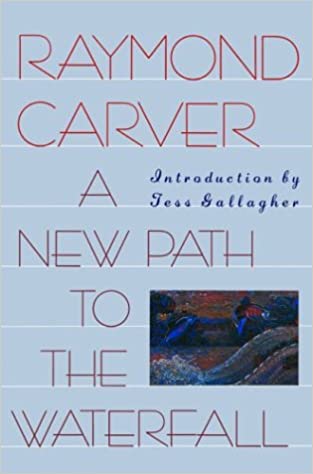Healing Poetry
Whoever you are, no matter how lonely,
the world offers itself to your imagination,
calls to you like the wild geese, harsh and exciting
over and over announcing
your place in the family of things.
——from The Wild Geese by Mary Oliver
There are a large number of poems that could be offered as potentially healing. I’m offering here a handful that I’ve chosen, and written about briefly, because they seem to me to resonate especially well with the process of healing, and because any one of them seems like it could be a springboard—a trampoline?—to one’s own writing.
I. Poems that conjure a healing place
Last Night As I Lay Sleeping by Antonio Machado
The Peace of Wild Things by Wendell Berry
The Lake Isle of Innisfree by WB Yeats
Island of the Raped Women by Frances Driscoll
Keeping Quiet by Pablo Neruda
What I Want by Alicia Ostriker
II. Poems about a quest
The Journey by Mary Oliver
Diving into the Wreck by Adrienne Rich
III. Poems that might offer company during a difficult time
The Guest House by Rumi
A Ritual to Read to Each Other by William Stafford
Satellite Call by Sara Bareilles
The Armful by Robert Frost
The Spell by Marie Howe
Talking to Grief by Denise Levertov
Sweetness by Stephen Dunn
My Dead Friends by Marie Howe
III. Poems for looking at the world in new ways
The Wild Geese by Mary Oliver
Thirteen Ways of Looking at a Blackbird by Wallace Stevens
Eighteen Ways of Looking at Cancer by a group of women in a writing workshop
Report from a Far Place by William Stafford
who knows if the moon’s a by e.e. cummings
The Snowman by Wallace Stevens
Notes in Bathrobe Pockets by Raymond Carver
A New Path to the Waterfall, a collection by Raymond Carver and Tess Gallagher
The Summer Day by Mary Oliver
IV. Poems about the process of reading
Introduction to Poetry by Billy Collins
V. Poems for considering purpose
Every Craftsman by Rumi.
Eighteen Ways of Looking at Cancer
EIGHTEEN WAYS OF LOOKING AT CANCER by Eleanor, Louise, Lydia, Nell, Rosetta and Sandra I I love my mother, my brother and my grandmother But I’m not ready to go and be with them yet What about my three children? II Questions: How are we going to proceed? What is my chance of recurrence? How did this happen to me? Why am I even in this picture? III A lot of people think, “Why me?” I never did go through, “Why me?” IV Pure and simple fear Fear of...
Wild Geese: An Image for Writing and Healing
Three times in the last month I have come across, in three different places, the poem, “Wild Geese,” by Mary Oliver. After the third time, I thought this might be a poem I ought to pay some attention to. The poem opens with the speaker telling us, her reader, that we do not have to be good, we do not have to walk on our knees for a hundred miles through the desert, repenting. And, then, this line: “You only have to let the soft animal of your body...
Whatever Leads to Joy
The book, What the Living Do, was written by Marie Howe in the wake of her brother’s death from AIDS. It’s a book that, perhaps better than any other book I know, walks that delicate balance between making memorial—remembering who and what has been lost—and choosing life in the wake of such loss—figuring out, day by day, what it is that the living do (after). There’s joy in the book—and in the poem—but it’s that bittersweet kind of joy— The poem, “My Dead Friends,” can be found here. The...
Notes in Bathrobe Pockets
Foggy this morning. I’m thinking (again) about those pieces and images that can pierce through fog. For a writer. Or for a reader. The kinds of things that Janet Desaulniers is talking about, I think, when she talks about collecting. In his book, A New Path to the Waterfall, a book about, among other things, navigating loss, and navigating the approach of death, Raymond Carver includes an apparently simple poem: “His Bathrobe Pockets Stuffed with Notes”. The poem is made up of of thirteen fragments. Here are three: Those...
A New Path to the Waterfall by Raymond Carver & Tess Gallagher
This book is the most beautiful example I know of a written mosaic or collage. It began, as near as I can tell, in September of 1987 when Raymond Carver, a gifted writer of both short stories and poems, was diagnosed with lung cancer. The following March the cancer metastasized to his brain, and, then in June, lung tumors recurred. These are the facts that initiated his illness and which Tess Gallagher, his wife, and a gifted poet herself, describes in the introduction to this, Carver’s last book: A...
Four Chambers for Tyler David Tandeski: A Featured Piece
[I am very pleased to introduce this poem submitted by Danielle Crawford, a young woman at Fairhaven College in western Washington state. She began writing this poem while in her first “official” poetry class, four months ago, and she is now, she tells me, passionately pursuing a double major in creative writing and fine art.] Four Chambers for Tyler David Tandeski In memoriam [October 1, 1999] I. It stinks like cotton swabs turned cold beside Mother’s under-ripe belly. Six months have passed. She sits, waits: hunched, hurt on that...
The Shelter of Poetry
Several years ago now, in the May/June 2001 issue of Poets and Writers magazine, a series of articles appeared on the topic, “Writing as a Healing Art.” Among these, perhaps the most compelling was a feature by Felicia Mitchell on Frances Driscoll, the author of a volume of poetry, The Rape Poems. Driscoll was working as a poet, beginning to publish her work, when in 1987 she was raped. She stopped writing after the rape. She believed, she said, that she would never write again. And then, gradually, poems...



